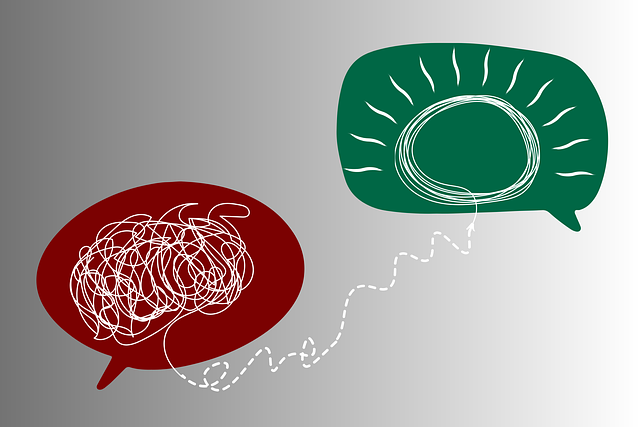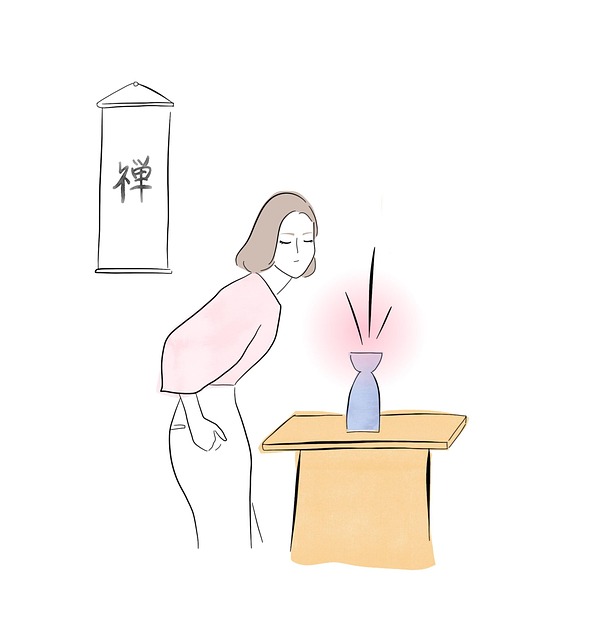Depression prevention in Lafayette utilizes biofeedback therapy, a non-invasive approach focusing on physiological responses. This method complements traditional talk therapies by teaching individuals to manage stress and improve mental well-being through controlling heart rate, muscle tension, and other bodily functions. Lafayette Biofeedback Therapy incorporates CBT, emotional intelligence, and mindfulness practices like yoga and meditation. Lifestyle changes, community support, and tailored burnout prevention strategies from healthcare providers are also emphasized for holistic depression management, reducing mental health risks and fostering resilience.
Depression is a prevalent yet manageable condition. This article explores comprehensive strategies to prevent and combat depression, offering a multi-faceted approach to mental wellness. From understanding the nuances of this illness to exploring innovative treatments like Lafayette Biofeedback Therapy, we delve into effective methods. Lifestyle adjustments, cognitive behavioral therapy, and building supportive networks are also highlighted as powerful tools in preventing and managing depression.
- Understanding Depression: Recognizing Signs and Symptoms
- Lafayette Biofeedback Therapy: A Non-Invasive Approach to Mood Regulation
- Lifestyle Changes for Enhanced Mental Wellbeing
- Cognitive Behavioral Therapy (CBT): Shaping Positive Thought Patterns
- Building a Support Network: The Power of Connection in Prevention
Understanding Depression: Recognizing Signs and Symptoms

Depression is a complex mental health condition that can significantly impact an individual’s daily life and overall well-being. Recognizing the signs and symptoms early on is crucial in preventing its onset or mitigating its effects. It often presents as persistent feelings of sadness, hopelessness, or loss of interest in activities once enjoyed. This emotional distress can lead to changes in behavior, thought patterns, and physical health. Common indicators include increased fatigue, difficulty concentrating, changes in appetite or sleep patterns, and, in severe cases, thoughts of self-harm.
In Lafayette, biofeedback therapy has emerged as a valuable tool in the mental health arsenal. This non-invasive technique teaches individuals to gain control over certain bodily functions, thereby helping to manage stress and improve overall emotional healing processes. Additionally, local organizations offer Stress Management Workshops and Mental Health Education Programs designed to empower folks with strategies for depression prevention. These initiatives focus on fostering resilience, promoting healthy coping mechanisms, and providing support networks, ultimately contributing to a more vibrant and resilient community.
Lafayette Biofeedback Therapy: A Non-Invasive Approach to Mood Regulation

Lafayette Biofeedback Therapy offers a non-invasive approach to mood regulation, making it a promising strategy for depression prevention. This therapy utilizes biofeedback techniques to help individuals gain control over their physiological responses, thereby influencing emotional states. By teaching individuals how to consciously regulate heart rate, muscle tension, and other bodily functions, this method empowers them to manage stress and improve overall mental well-being.
Unlike traditional talk therapies that primarily focus on cognitive aspects, Lafayette Biofeedback Therapy addresses the body’s role in mental health. This holistic approach has proven effective for those looking for alternative or complementary solutions to crisis intervention guidance. By reducing symptoms of anxiety and promoting relaxation, biofeedback can also contribute to Mental Illness Stigma Reduction Efforts, as it provides individuals with tools to take charge of their mental health. Moreover, its ability to offer Trauma Support Services makes it a valuable resource for navigating the physical and emotional aftermath of traumatic events.
Lifestyle Changes for Enhanced Mental Wellbeing

Incorporating lifestyle changes is a powerful tool in the arsenal against depression. Regular exercise, a balanced diet rich in nutrients, and adequate sleep play pivotal roles in enhancing mental wellbeing. These foundational aspects support brain health and can significantly impact mood regulation. For instance, activities like yoga or meditation, accessible through Lafayette Biofeedback Therapy, offer effective stress management techniques that have been shown to reduce symptoms of depression.
Beyond individual practices, seeking support from a community perspective is invaluable. Organizations such as Stress Management Workshops provide platforms for learning and sharing strategies to cope with stressors. Similarly, Trauma Support Services cater to those who have experienced traumatic events, offering specialized care essential for preventing and managing depression stemming from past traumas. For healthcare providers facing burnout, Burnout Prevention Strategies specifically tailored to their needs can foster resilience and promote a healthier work-life balance, thereby mitigating the risk of mental health issues like depression.
Cognitive Behavioral Therapy (CBT): Shaping Positive Thought Patterns

Cognitive Behavioral Therapy (CBT) is a powerful tool for preventing and managing depression by focusing on identifying and changing negative thought patterns. This therapy helps individuals recognize distorted thinking, replacing it with more realistic and positive perspectives. Through CBT, Lafayette Biofeedback Therapy guides clients to challenge cognitive distortions, such as all-or-nothing thinking or catastrophizing, which can trigger depressive episodes. By learning to reframe negative thoughts, individuals gain a sense of control over their emotional well-being.
Emotional Intelligence plays a crucial role in this process, enabling individuals to understand and manage their emotions effectively. Journaling exercises, often combined with compassion cultivation practices, offer guidance for tracking moods, identifying triggers, and cultivating positive self-talk. These activities support mental wellness by fostering self-awareness and resilience, ultimately contributing to a more balanced and hopeful mindset.
Building a Support Network: The Power of Connection in Prevention

Building a strong support network is an essential aspect of depression prevention and overall well-being. Connection and community play a powerful role in mental health, and fostering meaningful relationships can be a game-changer for individuals at risk or currently battling depression. Lafayette Biofeedback Therapy encourages clients to surround themselves with like-minded people who can offer understanding, empathy, and practical support. This could include family members, close friends, support groups, or community organizations where individuals share similar experiences and challenges.
By engaging in open conversations about mental health, sharing feelings, and offering mutual support, these connections can enhance one’s sense of belonging and purpose. Developing inner strength through resilience building and mind over matter principles is further supported by a robust social network. When faced with depressive episodes or stressful situations, having a reliable support system provides a buffer, offering encouragement and practical help to navigate difficult times. Such relationships contribute to an individual’s overall resilience, fostering a sense of hope and empowerment.
In conclusion, preventing depression involves a multifaceted approach. While understanding its signs and symptoms is crucial, specific strategies like Lafayette Biofeedback Therapy offer non-invasive solutions for mood regulation. Lifestyle adjustments, cognitive behavioral therapy, and building a strong support network are also vital components in fostering mental wellbeing and guarding against depression. By integrating these diverse methods, individuals can navigate life’s challenges with enhanced resilience and improved emotional health.









